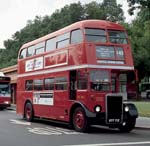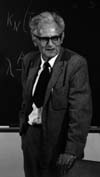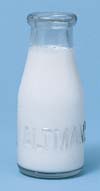RACIAL TENSIONS
It was with great sadness that I read the report in "News and Notes" titled "Race Matters" in the summer 2001 edition of UC Davis Magazine. To learn of race- and hate-motivated incidents at my old campus was quite distressing and surprising. Is this the same campus that Nelson Mandela and the pope visited? Where Iranian students set up an information table in the MU during the hostage crisis? Where a student of Caesar Chavez was elected to the council? UC Davis was where I met people of different cultures and races for the first time and learned that we all feared the same midterm and could all learn to negotiate the dreaded traffic circle at the Chemistry Building in the rain. I followed the events in China out of concern for a lab partner's family. I met a graduate student whose mother had lost her first family in a concentration camp and her friend, a postdoc in the same lab, whose father had been a German solder.
I'm not so old that I should start on the "when I was there" stories, but I'm distressed to see the campus environment going backwards. I fervently hope the efforts to address the issues which were described in the article are successful. Racial tensions certainly existed when I was at Davis and we even had some distressing incidents, but we all hoped the future would be better. It seems to me that, when I was on campus, we had enough self esteem to combat, or at least be ashamed of, our bigotry.
Tanya Smart '80, M.A. '82
Fort Bragg
via e-mail
I read with interest the News and Notes item "Race Matters." It is refreshing to see that very little has changed in the past 25 years. I think it is basic human nature, when living the very simplistic and uncomplicated lifestyle of a modern college student, a lifestyle that is insulated from the real world and which places very limited demands of personal responsibility upon the student, to over-react, to become indignant and to throw tantrums over these sorts of trivial matters. And of course, the university always over-reacts and creates another bureaucratic office. UCD was that way back in the 1970s and appears to be the same in the New Millennium.
But don't worry, boys and girls, one of these days you will leave your cocoon and be forced to carry your own water. As you begin to earn a living, become responsible for yourself for the first time and perhaps even for a family, and you become productive members of society, you will grow up, your skin will thicken, and personal slights, imagined or otherwise, will roll right off your back. Your blood pressure will drop and life will get more comfortable as you realize there are much more serious matters to deal with.
Rick Cunnington '75, M.S. '78
Oro Valley, Ariz.
via e-mail
 BUS DEVOTION BUS DEVOTION
I just read your article about Unitrans in the summer magazine and wanted to say thanks for updating us alumni on Unitrans. I worked at Unitrans as a conductor, driver and supervisor from 1984 to 1986. I would love to see a longer article about Unitrans: its history, some of the employees (past and present) and what is going on now. Thanks for a terrific magazine that keeps me up to date on all things UC Davis!
Daryl von Haunalter (Whaley) '86
Mountain View
via e-mail
REMEMBERING MAX
I want to thank you for the excellent article on Max Kleiber that appeared in your recent issue of UC Davis Magazine (summer 2001). As a former student of Professor Kleiber, I can testify that he was an outstanding favorite among students for his unquenchable enthusiasm, sense of humor and his objective honesty in discussing controversial issues.
It is important to correct one item in your article concerning his refusal to continue serving in the Swiss army--"after witnessing the devastating battle at Verdun." Max was court-martialed, served time in jail and was discharged (dishonorably) from the army, not for his concern about Verdun but, rather, because of his reaction to the news that high-level Swiss army officers had been caught spying for the Germans. Max explains these events in detail in his oral history, which is located in Shield's Library, An Old Professor Ruminates: Max Kleiber (pages 34–38). In essence, he explained that he could not in good conscience pass along orders to his subordinates from an Army High Command that had been corrupted, and therefore, he refused to continue serving.
Max's whole life was guided by the highest principles and a strong conscience based on his humanitarian values, which could not be compromised. Unfortunately, today's students cannot personally experience this great man's teaching and humanitarian values, but your little article will help them to understand and remember why Kleiber Hall, modestly ensconced between Briggs and Storer Halls, is there to honor one of our campus's truly great professors.
Arthur L. Black, professor emeritus of molecular biosciences, UC Davis
In regard to your "Namesakes" sidebar (page 9, summer 2001) referring to Max Kleiber and his refusal to sign the "loyalty oath," which was very interesting, I would refer your readers to an excellent book about the subject titled The Year of the Oath by George R. Stewart: "A concise and highly readable account of the fight for academic freedom at the University of California" (from the book jacket).
Published in 1950 and possibly now out of print, it is not only very informative about the "loyalty oath" controversy and how it affected the university but is also very insightful in terms of human behavior.
Nancy Thornburg
Markleeville
via e-mail

After spending three years in the military, with the last year in Okinawa and Kimpo airfield in Seoul, I got back into the UC system--Berkeley '46 and '47. Got married and started at Davis in the spring semester. Housing was tough to find, so we moved into the guest house on Dr. and Mrs. Kleiber's place. My wife was to take care of the two little Kleiber boys, while I did the yard work. My wife got pregnant and wanted a little more privacy, so we moved to 123 D St. I became chairman of the "Youth for Wallace" and held our meetings at our residence. One of our members was an African-American, of only a total of three on the entire campus. The local paper at the time questioned our activities in a column--I'm sure because of the skin color of Bob W. In those days, not only were minorities scarce, but there was little or no intermingling. We went to Sacramento to lobby one of the authors of the "loyalty oath," Sen. Jack Tenny. He gave us a few minutes of his time but the Levering amendment was a fait accompli. Your article on Dr. Max Kleiber [summer 2001 issue] reminded me of those days and times. More than 50 years have passed, and I'm still married to Arlene, and Bob W., an animal husbandry major, is still our friend and stockbroker.
Daniel E. Cirlin '49
via e-mail
TURPIE'S LEGACY
I was sad to read that Dr. "Turpie" Jackson had died. Back in '75, I needed one quarter for a history requirement. As a fourth-generation Californian, I signed up for History of California. I ended up taking all three quarters because Dr. Jackson was such an entertaining, knowledgeable and witty lecturer and the reading books were so interesting. I'm glad his widow has memorialized him and herself with the big gift to the new Center for the Arts.
Sally (Judy) Gaines '76
via e-mail
WHY MILK?
The recent article titled "Why Milk" [spring 2001] asks the question, Why is dairy food such a staple in the western diet and why the ongoing and historic involvement of UCD with the dairy industry? The answer is simple: big money! According to data published by the Agricultural Issues Center at Davis and elsewhere, the dairy industry received over 17.9 billion taxpayer dollars in direct product support in the years 1980 through 1995. Moreover the Producer Subsidy Equivalents (PSE) (an expression for all subsidies, direct and indirect) for the dairy industry in the mid-1990s was 45 percent of the state's total of $2.3 billion per year.
The net effect of such incredible direct and indirect subsidies and support created a large and powerful industry. No wonder we have such an expansive set of campus and off-campus programs for the industry. I was part of that program for over 22 years, and I am happy to have moved on. I do not mean to appear ungrateful for the education and experience. However, many critical problems are not effectively addressed, largely because they are "unpopular" with the industry.
My recent experiences in New Zealand and Australia witness a program for complete deregulation of milk prices and milk supply. Today the transformation is widely supported and now is seen as necessary for making their industry competitive in the world marketplace.
What is the right direction for the United States and California? Seems the UC system could be taking the lead, or is it protecting the status quo? The programs of the future cannot be designed from the past with all of the political, programmatic and industry baggage that follows like zealous lobbyists. The social and scientific contributions of the Land Grant college systems are being questioned, and they must.
Rick Bennett, Ph.D. '77
via e-mail

|

